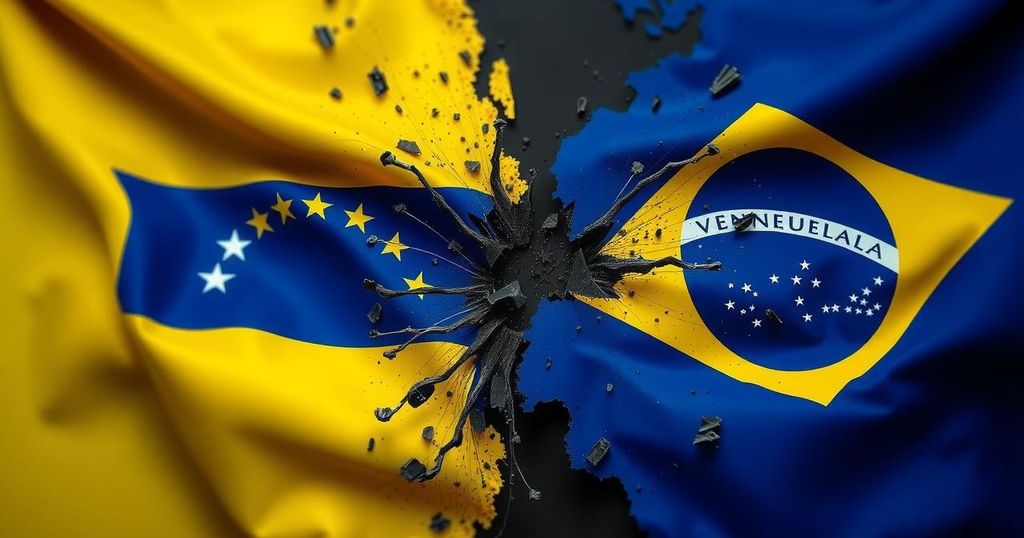Venezuela’s Diplomatic Strain with Brazil Following BRICS Membership Rejection

Venezuela’s rejection from the BRICS alliance by Brazil has escalated diplomatic tensions. Venezuela’s government accused Brazilian officials of acting on U.S. behalf, following Brazil’s refusal to support its membership bid. The discord is exacerbated by contested presidential election outcomes and Brazil’s concerns regarding Venezuela’s eligibility for regional representation.
Venezuela has intensified its criticism of Brazil following the latter’s refusal to support Venezuela’s application to join the BRICS group of emerging economies. The Venezuelan government, led by President Nicolás Maduro, accused Brazilian officials of undermining diplomatic relations by allegedly acting in favor of U.S. interests. This confrontation arose after Brazilian foreign policy advisor, Celso Amorim, disclosed that Brazil did not endorse Venezuela’s application at the recent BRICS summit in Russia, further aggravating long-standing strains over Venezuela’s disputed presidential election results from July. The Venezuelan Foreign Relations Ministry summoned Breno Hermann, Brazil’s chargé d’affaires in Caracas, to protest against the Brazilian government’s repetitive and offensive statements. Officials specifically condemned Amorim for allegedly acting as an agent of American foreign policy by commenting on Venezuela’s internal political processes. They asserted that these evaluations threaten the diplomatic ties between the two nations. In the context of ongoing tensions, Amorim acknowledged “discomfort” stemming from the Maduro administration’s failure to publicly substantiate its electoral victory. He suggested that a resolution of the diplomatic discord hinges on actions taken by Venezuela, although he did not specify what those actions should entail. The Venezuelan electoral authority claimed a hacking incident had compromised their ability to release detailed election data, while opposition groups assert they had gathered sufficient evidence to declare Maduro’s defeat in the election. In a bid to mediate the escalating crisis, regional leaders, including President Luiz Inacio Lula da Silva of Brazil and other leftist allies, attempted to intervene after the controversial elections but were ultimately unsuccessful in their efforts. Brazil has maintained its position regarding the BRICS alliance expansion, with Amorim stating that inclusion should be limited to countries capable of representing the region effectively, arguing that Venezuela does not currently satisfy these criteria. The Venezuelan government has since condemned this decision, likening it to previous economic sanctions imposed by the U.S.
The tensions between Venezuela and Brazil are rooted in several factors, including Venezuela’s contentious July presidential elections, where opposition groups claimed a significant victory over Maduro, and Brazil’s role as a leading voice among regional actors. The BRICS alliance, originally formed to represent emerging economies, has expanded to include several new members, yet Brazil has taken a clear stance against Venezuela’s inclusion amidst concerns regarding its credibility and geopolitical influence. This situation is further complicated by ongoing U.S. sanctions and the volatile political climate in Venezuela.
In summary, the refusal of Brazil to support Venezuela’s application to join the BRICS alliance has heightened existing tensions between the two nations, marked by accusations and diplomatic disputes. Venezuela’s administration views Brazil’s stance as a subservience to U.S. interests, while Brazilian officials express legitimate concerns about Venezuela’s political situation and its implications for regional representation in the BRICS group.
Original Source: apnews.com







